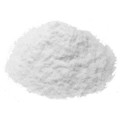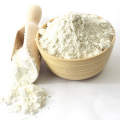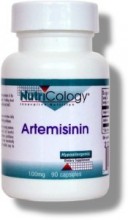 Loading... Please wait...
Loading... Please wait...- Home
- About Us
- Shipping, Returns & FAQ's
- Contact Us
-
For Your Information
- Canadian Customers Have a Choice if Shipping Via UPS
- Aura Cacia Homemade Aromatherapy Recipes
- Bella Nella Altered Art & Paper Crafts Blog
- Forms of Herbal Preparations
- Laundry Tips To Conserve Energy Blog from The Laundress
- The Story of Frontier Natural Products Co-Op
- Sovereign Silver Hydrosol and Aloe Protocol Stops Downward Spiral of Gut Dysbiosis
- Disclaimers
- Recommended Links
- RSS/Recent News
- The Story of Typhoon Housewares
- Reviews/Testimonials
- Raw Ingredients for Mfg
- Home
- Supplements
- Digestive
- Artemisinin (Sweet Wormwood) 90/300 VegCaps NutriCology
- Home
- Supplements
- Herb, Single
- Capsules/Tablets
- Artemisinin (Sweet Wormwood) 90/300 VegCaps NutriCology
Artemisinin (Sweet Wormwood) 90/300 VegCaps NutriCology
Product Description

Pure artemisinin or Qinghaosu, the active constituent of the herb Artemisia annua (sweet wormwood), a microbial balancer. Good quality Artemisia annua contains 0.3-0.5% artemisinin, so pure artemisinin provides hundreds of times more of the active constituent artemisinin than the whole herb itself.
NutriCology® introduced artemisinin to the U.S. market more than a decade ago. NutriCology does independent potency assays on every batch (using HPLC), and independent tests verify its effectiveness. NutriCology artemisinin is minimum 98.5% pure, and does not contain thujone. For more information about quality of artemisinin, see High Quality Artemisinin.
Artemisia annua, also known as sweet wormwood, sweet annie, sweet sagewort or annual wormwood (Chinese: ??; pinyin: q?ngh?o), is a common type of wormwood native to temperate Asia, but naturalized throughout the world.
Sweet wormwood was used by Chinese herbalists in ancient times to treat fever, but had fallen out of common use; it was rediscovered in 1970's when the Chinese Handbook of Prescriptions for Emergency Treatments (340 AD) was found. This pharmacopeia contained recipes for a tea from dried leaves, prescribed for fevers (not specifically malaria).
It is commonly used in tropical nations which can afford it, preferentially as part of a combination-cocktail with other antimalarials to prevent the development of parasite resistance.
Artemisinin is a sesquiterpene lactone with an endoperoxide bridge and has been produced semisynthetically as an antimalarial drug. The efficacy of tea made from A. annua in the treatment of malaria is contentious. According to some authors, artemesinin is not soluble in water and the concentrations in these infusions are considered insufficient to treat malaria.[4][5][6] Other researchers have claimed Artemisia annua contains a cocktail of antimalarial substances, and insist that clinical trials be conducted to demonstrate scientifically that artemisia tea is effective in treating malaria.[7] This simpler use may be a cheaper alternative to commercial pharmaceuticals, and may enable health dispensaries in the tropics to be more self-reliant in their malaria treatment.[8] In 2004, the Ethiopian Ministry of Health changed Ethiopia’s first line antimalaria drug from sulfadoxine/pyrimethamine (Fansidar), which has an average 36% treatment failure rate, to artemether/lumefantrine (Coartem), a drug therapy containing artemesinin which is 100% effective when used correctly, despite a worldwide shortage at the time of the needed derivative from A. annua.[9]
Suggested use: As a dietary supplement, 1 or 2 capsules one or two times daily before meals, or as directed by a healthcare practitioner. Sensitive individuals may want to take with food.
CAUTION: Not indicated for pregnant or nursing women. Long term administration (greater than 1 month) should be monitored by a healthcare practitioner and include liver enzymes and hemoglobin testing. Combining with antioxidants or iron may theoretically decrease effectiveness. Detoxification reactions may be experienced by some individuals. In rare cases may cause idiosyncratic liver dysfunction.
Serving Size 2 capsules
Servings per container 45
Amount per serving:
Artemisinin 200 mg
Other ingredients: Hydroxypropyl methylcellulose, microcrystalline cellulose, L-leucine.
References
wikipedia.org
Quality and Innovation - The NutriCology Tradition
For more than thirty years, NutriCology has been known for the highest quality, most hypoallergenic, and most cutting-edge nutritional supplements available. Physicians and healthcare practitioners around the world depend on NutriCology for their patients' nutritional support. Originating with the ground-breaking oxidant/antioxidant work of Stephen Levine, Ph.D., NutriCology was one of the first to introduce truly hypoallergenic products to the market.
Superior Quality Control
Since 1979, NutriCology has used only the purest raw materials available, and has implemented strict quality control procedures in every stage of production, including inspection of raw materials, manufacturing, packaging, and storing. NutriCology is licensed by the California Department of Health Services, Food and Drug Branch, registration number 0021150.
GMP Standards
Nutricology products are manufactured under the recognized principles of current Good Manufacturing Practice (cGMP), brought into final form by the FDA in June 2007. The GMP standards are applied to a wide variety of procedures associated with the manufacturing of dietary supplements, including receiving, testing, and approval of raw materials, production, and process controls, laboratory testing of labeled and packaged finished product, distribution control and accountability, and shelf life expiration testing to ensure freshness and potency.
For many years they have used the same manufacturers to produce their powder formulas, capsules, tablets, softgels, gels, and liquid products to ensure consistency. All of Nutricology's certified manufacturers meet or exceed cGMP requirements established by the FDA, as well as state and local regulations. In their facility in Alameda, California, highly trained staff bottle, label, and ship finished products. Their newly installed automatic bottling line has multiple built-in quality checks, such as weight verification and metal detection, to ensure all finished packaged products have the pre-determined physical count and are contaminant-free.
Unsurpassed Ingredient Quality
NutriCology uses only the purest and highest quality raw materials available. For example, they use only Nattokinase NSK-SD, the first nattokinase introduced into the US market, which has established standardization and quality levels for all other nattokinase. Their MicroChitosan contains small-size chitosan oligosaccharide, and Prima Uña de Gato contains TOA-free Cat's Claw.
Hypoallergenic Products
Taber's Medical Dictionary defines "hypoallergenic" as: "Diminished potential for causing an allergic reaction". Nutricology defines hypoallergenic as "free of all common allergens", specifically, wheat, corn, soy, gluten, yeast, dairy, eggs, fish, crustacean shellfish, tree nuts, and peanuts. Many very sensitive individuals who react to supplements in general are able to tolerate NutriCology products.
The FDA requires manufacturers to identify the presence of eight major food allergens on all product labels: milk, egg, fish, Crustacean shellfish, tree nuts, peanuts, wheat, and soybeans, as well as any ingredient derived from those foods. When an ingredient may have been derived from a common allergen, we are required by law to list that allergen on the label as a source of the ingredient, even if it does not contain any of the actual substance. For example, 100%-pure glucosamine sulfate does not contain any actual shellfish, but we are required to indicate the source material (shrimp, crab, lobster) on the label. NutriCology fully discloses all ingredients, both active and inactive on every product label, so doctors can make fully informed choices for their patients' nutritional support.
Find Similar Products by Tag
Find Similar Products by Category
You Recently Viewed...
Currency Converter
Choose a currency below to display product prices in the selected currency.




























